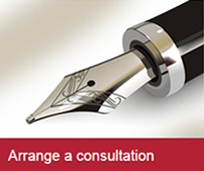Improving Your Life Through Immigration Since 1974
Articles
This page contains articles I have written on immigration-related themes and other articles of interest
Home > Information Bank > Articles
Some Tips for Writing the California Bar Exam
by Andy J. SemotiukNo bar exam is easy. The California bar exam is no exception. More so than in any other jurisdiction in North America, however, the California exam is not only a test of mental stamina, but a test of physical and emotional endurance as well. Some applicants pass on their first attempt. Others take the exam several times before their names finally appear in the Daily Journal as successful applicants. If your name is on the list this time, congratulations! But if not, or if you are about to write the exam for the first time, read on. This article is written for you. This article will touch on study techniques that can help you hone your knowledge of California law. It will set out some exam writing strategies that will help you do your best. And it will discuss outside influences that can impair your bar examination preparations. Just as you would never buy every item while shopping at your local grocery store, you don't have to accept every suggestion contained in this article. Choose what suits you. But consider this. I estimate that it cost me well over $ 100,000 in time and money to learn the bar writing skills offered to you for free in this article. Hopefully they will boost you over the top to enable you to practice law in California.
Study Techniques
- Study Answers to Previous Essay Exam Questions
By far the most important tip for preparing for the California state bar exam is to study the model answers to previous exam questions. If you are taking a bar review course like BAR/BRI for example, focus on the essay workbook. By reading an essay question from past exams, for example, outlining what you think the answer should be, and then comparing your answer to the BAR/BRI materials - you get an excellent picture of what you know, and what you still need to learn. By writing out your answer, at least in point form, before referring to the BAR/BRI answer, you clarify where your memory of the law is still hazy and needs sharpening. You can use the summary answers as review notes. Highlight key words. These highlighted notes will be invaluable study aids the night before the exam. - Read the Materials, Attend Lectures and Do Assignments
Your study patterns should follow a set formula. As best as you can, read the materials assigned before classes. Attend all the lectures or at least listen to the tapes of the ones you miss. Do the assignments. And write practice exams. Some of my wealthier friends signed up for extra bar preparation classes. This was a good idea and I benefited by listening to borrowed audio cassette tapes while driving to and from classes. - Employ Memory Devices Such as Acronyms
In preparing for the California bar exam you are confronted by an overwhelming niagra of legal materials. It is impossible to digest such an intimidating amount of knowledge without employing some memory devices to keep information as organized as possible. As often as possible, therefore, use pneumonics and acronyms to help your memory recall important concepts. For example, in real property law I used the acronym TIP to recall the four unities of title in joint possessory estates: Time, Title, Interest and Possession. (I just remembered that the T in TIP stood for the two unities of Time and Title). With a little creativity you can summarize entire courses into one or two word acronyms! - Use Funny or Exotic Images to Remember Concepts
Use a funny or exotic image technique to recall important concepts. For example, to remember the test for obscenity in constitutional law I imagined General Patton, pure naked, running laps around a track. This vision would help me recall that obscene material must appeal to the purient interest, be patentl offensive, and have no laps, that is no literary, 2rtistically, politically or socially redeeming feature. Making up rhymes, jingles and ridiculous exaggerated action stories with the materials helps to imbed the knowledge into the brain. - Check Off Correct Answers in the Answer Section of Multi State Material
When working on the multi state multiple-choice questions, make it a point to mark the correct answers to test questions in the answer section as opposed to the question section of your materials. This way later on you can review wrong answers again to brush up on weak areas without having to match up the answers to the questions. - Keep a Disciplined Daily Schedule
As far as possible try to keep balance in your daily schedule. That requires good nutrition, exercise and sleep. Studies indicate that the average person's peak attention span is 45 minutes - make use of this fact. Take cat naps when you are tired and breaks every hour or so.
Exam Writing Strategies
- Time Management
It is virtually impossible to succeed in any law examination without mastering the concept of time management. The California bar exam is no exception. It is not what you know. It is what you know in one hour. Budget your time or perish. The same holds true for the multi-state multiple choice exam. In fact, time budgeting on the multi-state multiple choice section of the exam is so important you should make a special effort to pre-mark your computer answer sheet with pencilled-in times. For example, at question number 17 mark 9:30, at question 34, 10:00, etc. This helps you stay super conscious of whether you are on time going through the multiple-choice questions. - IRAC Adversarial Answer Format
IRAC stands for Issue, Rule, Application and Conclusion. It is a style of writing answers to law school essay questions. When coupled with an adversarial answer format, it is an ideal way of writing the bar exam. Thus, you identify an issue and discuss it by pointing out what the plaintiff would say, and then what the defendant would counter. You then state the rule of law that applies. You then apply the rule again laying out the viewpoints of each party to the dispute. Finally, you state a conclusion indicating how the court would rule on the issue. Using this approach, where applicable, can substantially increase your grades. - When Reading Bar Questions Write Your Ideas in the Margins
Recording your ideas the moment they come to you as you read an exam question is very important. Do so right on the exam booklet you are reading. If you don't, more often than not, you will forget these ideas. Capture them on the spot. Waiting until you turn to writing your answer will be too late. - Diagram the Parties to a Dispute, Use Ladder Time Lines
If a question discusses a dispute between a plaintiff and a defendant, diagram this immediately with the symbols: P v. D. As the question refers to other parties, such as a witness for example, mark that witness' initial beside the party the witness supports. Thus, if she supports the plaintiff, mark: W-Pv.D. Drawing lines to show a bond between two parties also helps to keep things straight. Use vertical time lines marking significant dates down the margin of a question instead of across the page. This is more conducive to the format of the bar exam and looks like a ladder going up the page when completed. - Use a Headnote Style on Issues Identified and Feedback Facts
Write a headnote style of paragraph to summarize the applicable issues identified in the question you have read. This can be your outline for your subsequent written answer. Then, to ensure you have fed all the facts of the question back to the examiner in your answer, highlight each fact in the question that has been included in your essay answer with a yellow magic marker. A similar quick review of your scratch paper notes will identify to you any facts and any ideas you may have neglected to include in your answer. - State the General Rule Before Discussing Exceptions
The most amazing discovery I made in reviewing my old bar exams which I obtained from the state bar examiners and compared to the model answers they provided was that I failed to state the general rule in my hurry to discuss a given exception. Thus, for example, I failed to define hearsay before going into a discussion of the admissions exception to the hearsay rule. You have to assume you are writing the answer for someone who knows nothing about the law in order to get top grades. - Answer the Question Exactly the Way it is Asked
Particularly on performance exams, the key tactic to employ is to answer the question exactly the way it is asked. Just as a diagnosis in medicine is half way to a cure, following the requirements of the question on a law exam is half way to a passing answer. As amazingly simple as this may appear, sometimes you tend to get wrapped up in your answer at the expense of failing to follow the format required by the question. Don't miss this. - Discuss Your Exam Answers During the Breaks
Once you leave the exam area what you have done is history. You cannot change history, whether you did well or poorly. But you can correct any misconceptions you have about issues raised in the exam by discussing the answers with your fellow students. Going into the next portion of the exam you will have a stronger grasp of the concepts you may have missed earlier, and they may arise again. If you have a sensitive ego, beware - otherwise, review with your fellow students to sharpen your understanding of the issues you faced.
There is no doubt that at some stage in your preparations you will become discouraged. You will seriously doubt your ability to endure the pressure. After all, for several months your life will be out of balance as you sacrifice valuable time focusing on the bar exam instead of elsewhere. Personal problems can be exacerbated. Your family and friends may suffer. These are some of the problems associated with your goal of becoming an attorney in the state of California. Yet in the end, this is short-term pain for long term gain.
If you endure, sooner or later you will succeed. Indeed, maybe the next time you look at the list of successful applicants in the Daily Journal, your name will appear. Then it will be time for you to go out into the legal world to make us all proud. Good luck.
Andy J. Semotiuk is an attorney who has successfully written the California, New York, Ontario, Alberta and British Columbia bar exams. A former United Nations correspondent, Mr. Semotiuk has been in private practice for over 25 years. He is an associate of the law firm of Hansma and Bristow in Edmonton, Alberta





